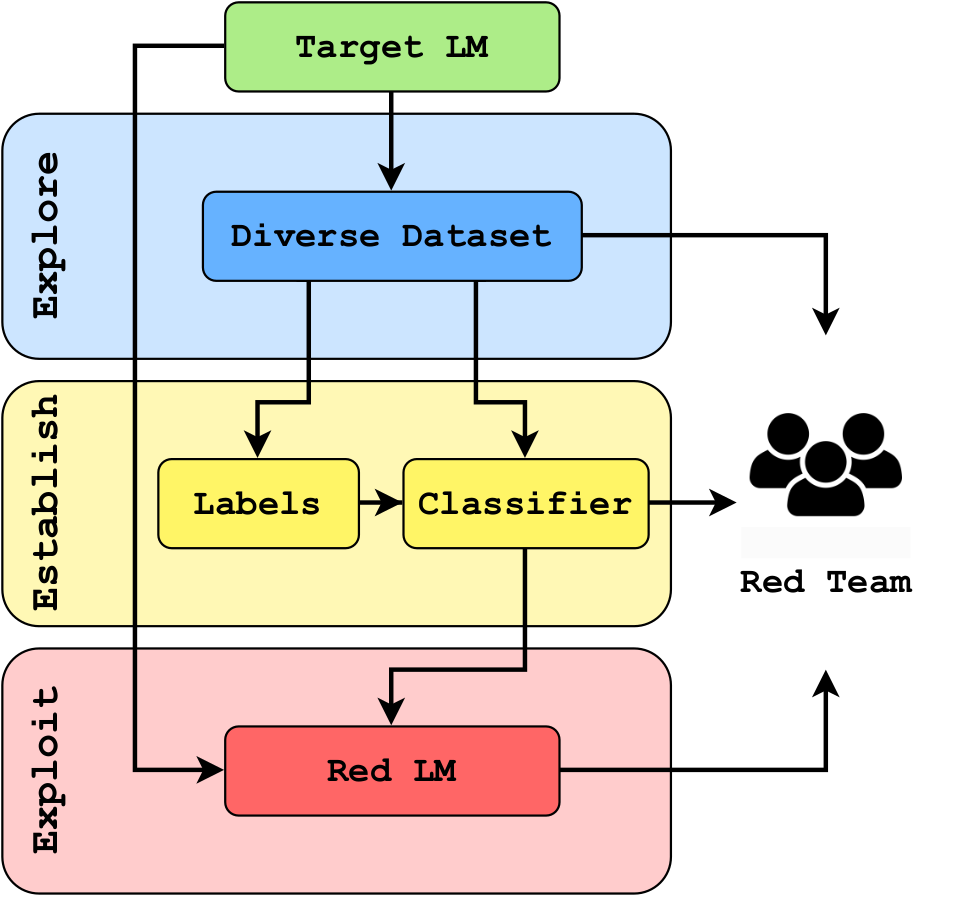Explore, Establish, Exploit: Red Teaming Language Models from Scratch
Deploying large language models (LMs) can pose hazards from harmful outputs such as toxic or false text. Prior work has introduced automated tools that elicit harmful outputs to identify these risks. While this is a valuable step toward securing models, these approaches rely on a pre-existing way to efficiently classify undesirable outputs. Using a pre-existing classifier does not allow for red-teaming to be tailored to the target model. Furthermore, when failures can be easily classified in advance, red-teaming has limited marginal value because problems can be avoided by simply filtering training data and/or model outputs. Here, we consider red-teaming "from scratch," in which the adversary does not begin with a way to classify failures. Our framework consists of three steps: 1) Exploring the model's range of behaviors in the desired context; 2) Establishing a definition and measurement for undesired behavior (e.g., a classifier trained to reflect human evaluations); and 3) Exploiting the model's flaws using this measure to develop diverse adversarial prompts. We use this approach to red-team GPT-3 to discover classes of inputs that elicit false statements. In doing so, we construct the CommonClaim dataset of 20,000 statements labeled by humans as common-knowledge-true, common knowledge-false, or neither. We are making code and data available.
PDF Abstract

 CREAK
CREAK